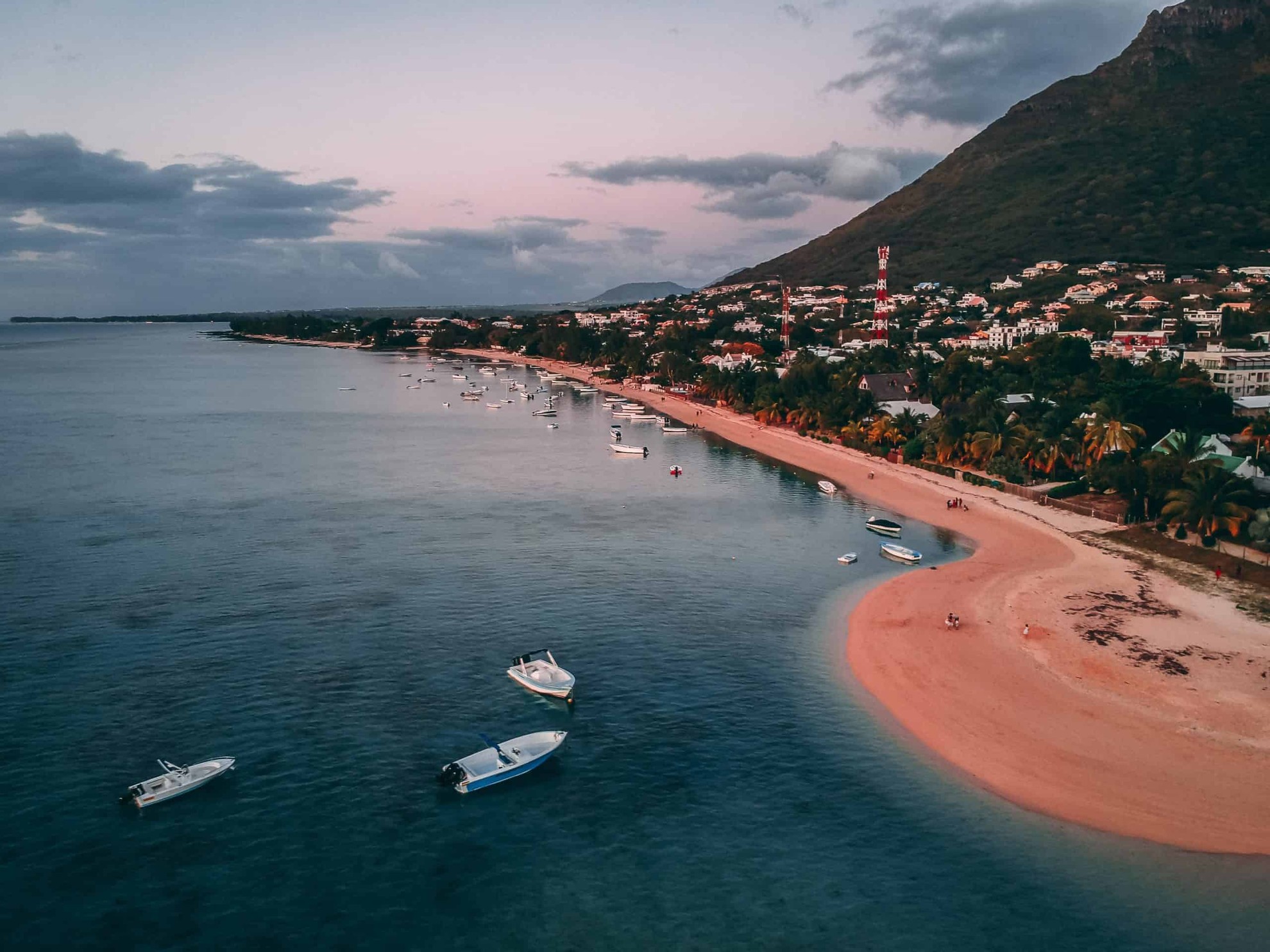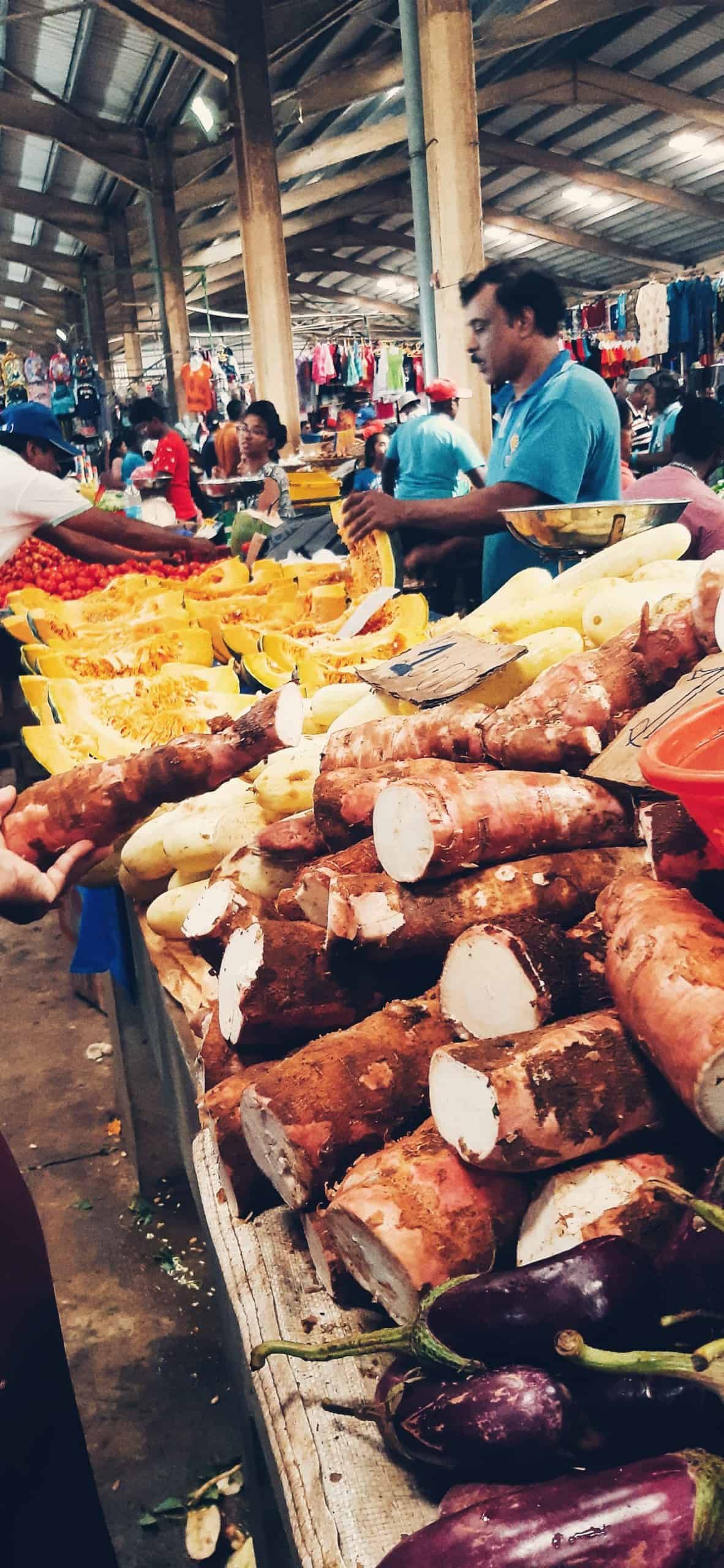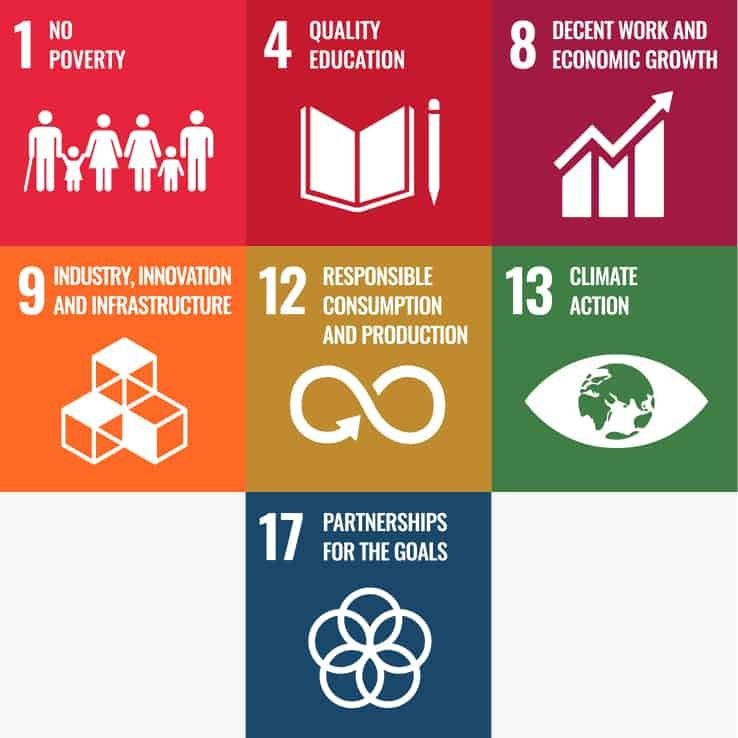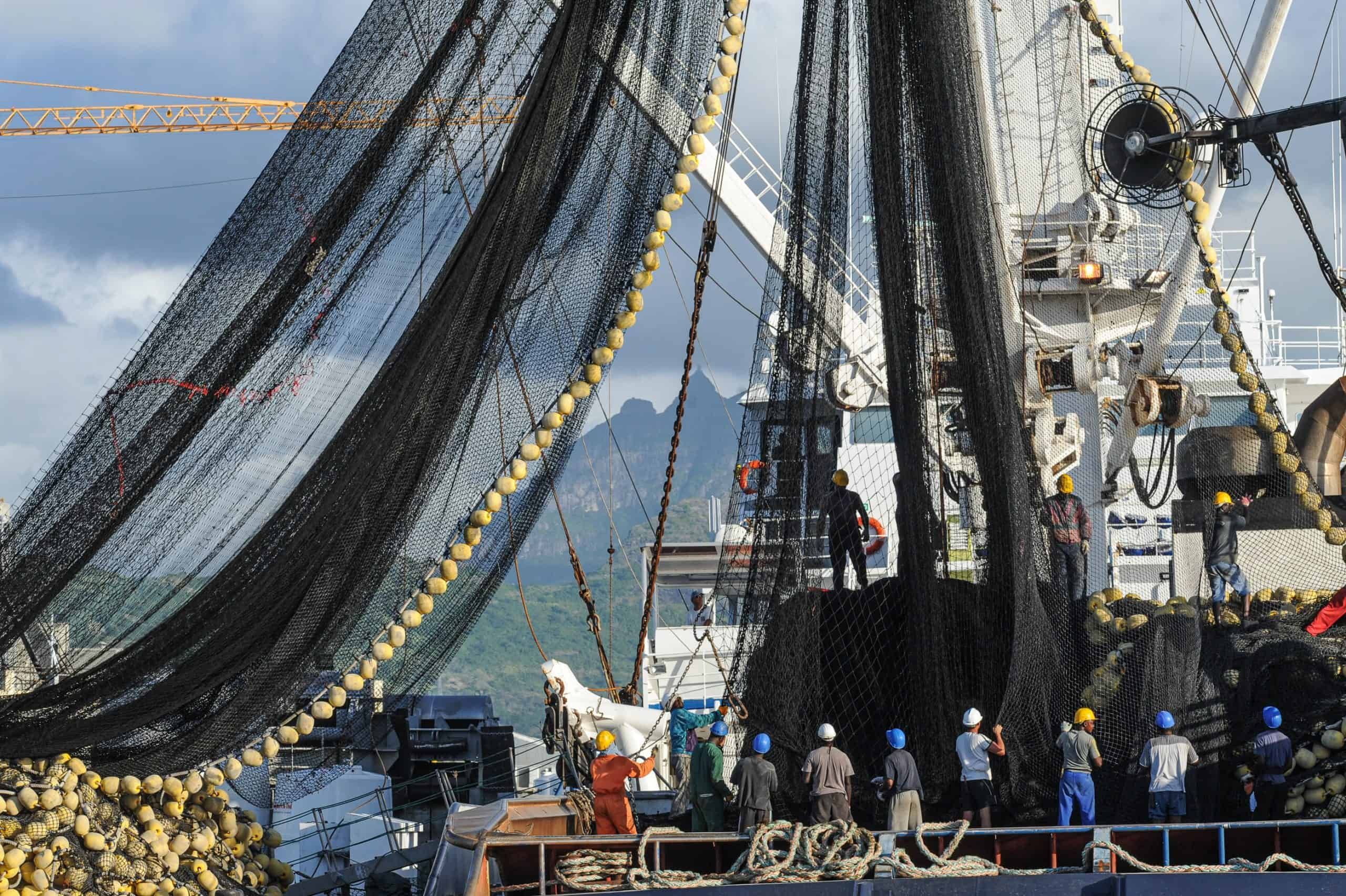Main Navigation
Mauritius
Overview
The Mauritius National Vision lays out the country's pathway to having a high-income, sustainable and inclusive economy.
Since independence in 1968, Mauritius has transformed into a diversified upper-middle-income economy, benefitting from dynamic industrial, financial and tourism sectors and high levels of human development. Increased economic activity has also adversely affected the environment. Marine and air pollution coupled with the island’s vulnerability to climate change has made building a resource-efficient and resilient economy essential to overcome the effects of environmental shocks.
The overarching Mauritius National Vision (previously its Vision 2030) sets out to tackle environmental and social challenges, as well as achieve the country’s ambition of becoming a high-income, sustainable and inclusive economy. A Three-Year Strategic Plan 2017-2020, entitled ‘Rising to the Challenge of our Ambitions’ was also launched in June 2017, aiming to address pressing challenges through action in key growth sectors. A green economy was named as an approach to implement low-carbon growth and renewable energy strategies in agriculture, manufacturing, waste management and tourism. The following ‘Three-Year Strategic Plan: Pursuing Our Transformative Journey 2018/19-2020/21′, mainstreams Inclusive Green Economy (IGE) principles within sectoral strategic planning.
Since its independence in 1968, Mauritius has transformed into a diversified upper middle-income economy, benefitting from dynamic industrial, financial and tourism sectors and high levels of human development. However, increased economic activity has adversely affected the environment. Marine and air pollution coupled with the island’s vulnerability to climate change have made it essential for Mauritius to build a resource-efficient and resilient economy, one that is capable of overcoming the effects of environmental shocks.
The overarching Mauritius National Vision (previously its Vision 2030) sets out to tackle environmental and social challenges, as well as achieve the country’s ambition of becoming a high-income, sustainable and inclusive economy. A Three-Year Strategic Plan 2017-2020, entitled ‘Rising to the Challenge of our Ambitions’ was also launched in June 2017, aiming to address pressing challenges through action in key growth sectors. A green economy was named as an approach to implement low-carbon growth and renewable energy strategies in agriculture, manufacturing, waste management and tourism. The following ‘Three-Year Strategic Plan: Pursuing Our Transformative Journey 2018/19-2020/21′, mainstreams Inclusive Green Economy (IGE) principles within sectoral strategic planning.
Since 2014, PAGE has worked with the Mauritian government to achieve its vision, linked to the delivery of the Three-Year Strategic Plan. Key achievements include capacity development for the issuance of green bonds, guidance on social policies and the tracking public environmental expenditures, assessment of industrial waste and related industrial strategies and advanced green economy learning. A significant contribution was towards the Marshall Plan Against Poverty.
PAGE began a gradual phase-out of its support in 2019, developing a sustainability plan to safeguard results and the future of green economy in Mauritius. Since January 2020, the subsequent Government Programme for 2020-2024: Toward an Inclusive, High Income and Green Mauritius, Forging Ahead Together provides the framework for policymaking with reference to clean energy, mitigating climate risks and protection of marine resources.
Sustainable Development
PAGE has supported the achievement of the country’s Nationally Determined Contributions (NDCs) and several SDGs, including SDGs 1 (No Poverty), 4 (Quality Education), 8 (Decent Work and Economic Growth), 9 (Industry, Innovation and Infrastructure), 12 (Responsible Consumption and Production), 13 (Climate Action) and 17 (Partnerships for the Goals). Mauritius has also directly recognised PAGE as contributing to their achievements in the Voluntary National Review (VNR) of its SDGs during the High-Level Political Forum (HLPF).
COVID-19 and Green Recovery
With an economy highly dependent on tourism and imports, Mauritius was hard-hit by the impacts of COVID-19.
PAGE will be providing additional support targeted to a green economic recovery in Mauritius following a proposal developed in late 2020. The work will focus on strengthening the enabling environment and developing incentive measures for promoting a sustainable agro-processing industry and SME development. This will begin with a macroeconomic modelling exercise to forecast green jobs in the agriculture and food sectors and assess the impacts of the economic stimulus on the recovery of the sector.
Additionally, PAGE will assist in the development of a rapid assessment diagnostic toolkit for scaling up public and private finance for nature-based solutions and climate-smart agriculture to support sustainable food systems; inform the development of the Farm to Fork Strategy in the context of COVID-19 recovery; and support the revision of current operational guidance and regulations to reduce environmental impacts resulting from single-use plastics in food packaging, food waste and chemicals. Capacity-building programmes on new food management safety protocols will also target enterprises in the hospitality and food sectors.
PAGE Milestones
- 2014
Mauritius joins PAGE
Mauritius Fiscal Policy Scoping Study completed
- 2015
Green Economy Assessment of six economic sectors completed
- 2016
Marshall Plan Against Poverty launched, with PAGE support to its development
Industrial Waste Assessment (IWA) completed
- 2017
The Government of Mauritius articulates the countries vision and three Year Strategic Plan 2017-2020
Social Register built for families, following PAGE supported proposal for Marshall Plan
Project to track public sector expenditure allocated towards the environment and climate change launched
Two-day train-the-trainer on designing and delivering green economy e-learning held
- 2018
The week-long Green Economy Forum mobilised key stakeholders around policymaking and investments
The Government’s 2018-2019 budget speech emphasised economic strategies in line with PAGE recommendations
Green Economy Learning Needs Assessment completed
- 2019
Mauritius entered final year of PAGE, developing sustainability strategy
National green jobs model updated to account for green jobs impacts of the country’s NDCs
Mauritius recognised PAGE as contributing to achievements in the Voluntary National Review of SDGs
- 2020
National Programme 2020-2024 “Toward an Inclusive, High Income and Green Mauritius, Forging Ahead Together” launched
Capacity-building workshops led by Civil Service College Mauritius (CSCM) on mainstreaming IGE principles into civil servant training and secondary school curricula
SCORE training of trainers completed, with trainers at National Productivity and Competitiveness Council (NPCC)
Presentation on fiscal reform for sustainable food systems and agriculture
The PAGE Mauritius Story
Progress in 2020: A Snapshot
Launch of new government programme
In 2020, the government of Mauritius launched its new national programme for 2020-2024: “Toward an Inclusive, High Income and Green […]
In 2020, the government of Mauritius launched its new national programme for 2020-2024: “Toward an Inclusive, High Income and Green Mauritius, Forging Ahead Together”. The programme lays out the government’s vision for the next four years and will be a source of guidance for future policymaking. The programme contains aspirations that align with thematic areas PAGE has supported in the country, such as education and skills, industrial waste, tracking public expenditures on environmental and climate change measures, and poverty and inclusiveness.
Supporting a green economic recovery
In support of national COVID-19 recovery priorities, PAGE first analyzed potential areas for an inclusive green recovery using two analytical […]
In support of national COVID-19 recovery priorities, PAGE first analyzed potential areas for an inclusive green recovery using two analytical tools adopted by PAGE agencies. Through the national green jobs macroeconomic model, the ILO Green Jobs Programme conducted a rapid assessment of the national budget. Among the findings were potential gains from green policies on jobs, carbon dioxide emissions and distributional effects (referencing gender and income brackets) in organic agriculture production, textile manufacturing and tourism.
In parallel, UNEP’s Life Cycle Initiative conducted a rapid assessment of the same budget using 2015 data from the Sustainable Consumption and Production Hotspot Analysis Tool (SCP-HAT), which was developed to assess national SCP environmental footprints. The tool illustrated the relative footprints of the key sectors identified in the budget.
Based on the findings from these tools, the agriculture sector, or more systematically the food sector, was identified to deliver on a wide range of inclusive green economy fronts: inclusiveness, jobs, SCP and biodiversity. Consequently, from 2021 PAGE proposed that green recovery funds support this sector, as mentioned above.
Green finance
In 2020, a study was conducted on SME access to green finance, informed by consultations and surveys with a variety of national stakeholders, […]
In 2020, a study was conducted on SME access to green finance, informed by consultations and surveys with a variety of national stakeholders, including the Mauritius Bankers’ Association, Business Mauritius, the Development Bank of Mauritius and the Mauritius Commercial Bank. The draft was finalized at the close of 2020 (to be presented in early 2021). The study will aid the implementation of the country’s SME 10-Year Master Plan, launched in 2017.
Assessing green jobs
In 2020, updates were made to the Green Jobs Assessment model by incorporating impacts on employment stemming from the country’s […]
In 2020, updates were made to the Green Jobs Assessment model by incorporating impacts on employment stemming from the country’s Nationally Determined Contributions (NDCs). PAGE has worked with a modeler at the University of Mauritius to build capacity for national modelling moving forward. Preliminary results were presented in a webinar on macro-economic implications of COVID-19 on Mauritius, hosted by the UN Resident Coordinator Office and partners, including International Economics Consulting and the World Bank, on 29 October. Building on the updated assessment model, PAGE is completing a study on anticipated skills needs and developing a national Skills for Green Jobs Roadmap.
Integrating green economy into national courses
In 2020, PAGE supported the integration of green economy learning into CSCM’s (the Civil Service College Mauritius) programmes available to […]
In 2020, PAGE supported the integration of green economy learning into CSCM’s (the Civil Service College Mauritius) programmes available to civil servants and the broader population. This consisted of three main objectives 1) mainstreaming IGE and SDG aspects into existing courses; 2) broadening the offer of green economy e-learning products by integrating PAGE global training products; and 3) enhancing the knowledge and capacity of high school teachers on integrating green economy learning in the classroom.
Two capacity-building workshops were held by CSCM in February 2020, one a training of trainers focused on mainstreaming IGE principles into recurrent courses on strategic planning and project management, and another to train secondary school teachers. The training for civil servants using the IGE integrated courses began in March 2020.
To further raise awareness among secondary school teachers, a full-day workshop on “Integrating Climate Change and Green Economy in the Classroom” was held in October 2020. The event brought together teachers, NGOs and education authorities to consolidate available techniques, approaches and learning materials for integrating climate change and Inclusive Green Economy in the classroom, capture best practice examples and formulate low-cost solutions that can be widely applied to support foundational learning for children.
Completing training cycle for SCORE programme
In November 2019, PAGE supported a Sustaining Competitive and Responsible Enterprises (SCORE) pilot training aimed at optimizing the […]
In November 2019, PAGE supported a Sustaining Competitive and Responsible Enterprises (SCORE) pilot training aimed at optimizing the efficiency, productivity, cleaner production and competitiveness of SMEs through improved workplace cooperation. Building on this, SCORE trainers and representatives of the National Productivity and Competitiveness Council (NPCC) completed follow-up visits to the sample enterprises to provide mentorship and observe how the training principles had been applied. The SCORE training of trainers was completed in 2020 and Mauritius now has 9 SCORE trainers that have completed a full cycle of training.
Identifying measures to support sustainable results
PAGE has been working with national counterparts to establish a national sustainability plan, to identify results and maintain achievements on […]
PAGE has been working with national counterparts to establish a national sustainability plan, to identify results and maintain achievements on green economy in Mauritius. The draft Sustainability Plan, developed with engagement from the EC Delegation and UN Resident Coordinator, was approved by The Financial Secretary approved the draft Sustainability Plan in September 2020. To encourage further political will for green economy, an impact video to promote IGE and PAGE’s successes in Mauritius was also released in May 2020.




